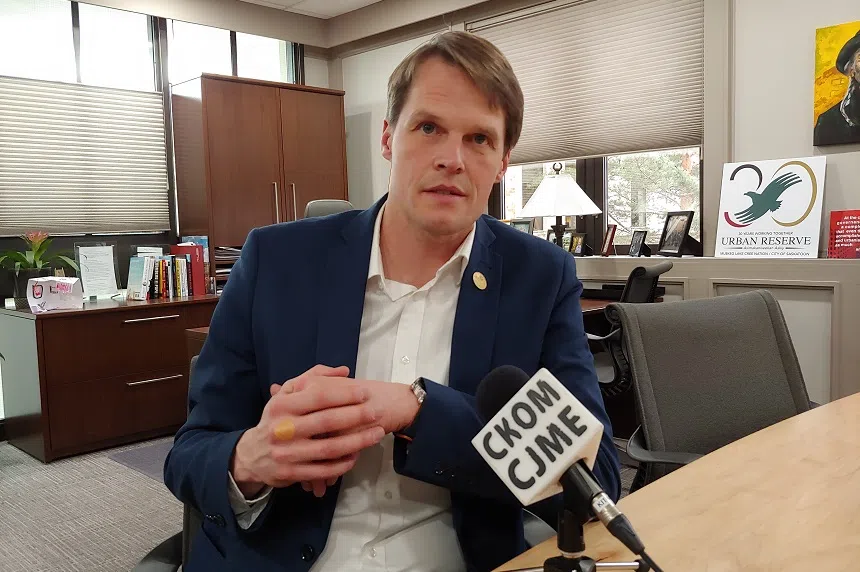It was another difficult pandemic year, according to Saskatoon Mayor Charlie Clark.
It started off with the cleanup of a massive snowstorm that pummelled the city in late 2020, friction with the provincial government over gathering sizes in the fall, new COVID-19 variants emerging, a drug overdose crisis, and a billion-dollar budget approved by city council.
Clark said 2021 has been a roller-coaster.
“It has been a year like no other. We had hoped that the pandemic was going to come and go in 2020 and then it lingered on and carried on throughout this year,” he said.
“We’ve had some points of things opening up and really being able to enjoy the city and life and then having to close back down and that obviously creates challenges. But what has been remarkable to see is the resilience of the city and to see people continually working together to keep the community safe.”
Over the last year, Clark says he was proud of the “Take it Outside” fund, an initiative to get more people outdoors safely and to support local businesses.
The massive cleanup after a huge snowstorm in late 2020 also saw snowplows and graders clearing out not just priority routes, but also moving into residential areas. The cost of the cleanup was around $14 million.
“Another highlight for me is I’ve seen so many facets of the community come together, and build partnerships and stronger relationships between the Indigenous and non-Indigenous communities around reconciliation …,” Clark said. “I see a real turning point there.”
But there were also areas that Clark said needed improvement and more attention.
“Obviously the issues around the drug crisis, opioids, the overdose crisis we’re seeing and homelessness (have) been a significant challenge for our community,” he said. “There are a lot of cracks in the system, a lot of ways that the system is failing right now.
“And it’s a real priority for me to try and bring the community together with the provincial and federal governments to really lay out a plan.”
The partnerships with the Saskatoon Tribal Council, the Central Urban Metis Federation Inc., and other community agencies gave the city a foundation from which to work.
“There’s so many families struggling right now and people struggling, and we really need to create better outcomes for those individuals,” Clark added.
Clark said the city has had to constantly adapt to “curveballs” thrown its way by COVID-19 variants and the sheer number of infections in the Saskatoon region over the last year.
“That has meant continuing to run the city through virtual meetings and platforms,” Clark said.
During the Delta wave, the Saskatoon region became the epicentre of the pandemic in the province, with infections rising rapidly shortly after school started in early September.
Clark said during council meetings, being able to see other councillors and to interact with them and administration hasn’t been ideal, but staff have been incredibly resilient, including everyone from first responders like firefighters, police and others.
Even though Clark knows people are tired of the pandemic heading into its second year, he believes there’s reason for hope and optimism.
“If we can continue to work together, and seize on the opportunities of 2022 and make sure nobody’s left behind, we can build on those opportunities,” he said.











